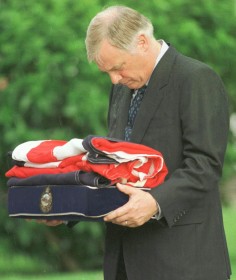Opinion | How Hong Kong's business elite have thwarted democracy for 150 years
Philip Bowring says a look back over the past 150 years reveals how Hong Kong's business elite have continually used their power to frustrate the public's democratic ambitions

The aims could never be achieved immediately. The goal had to be longer term and less an appeal to Beijing, more a warning to the forces of entrenched privilege in Hong Kong, already under threat from repeated revelations of greed and sleaze. Does this decrepit system have the capacity to respond to the underlying causes of discontent, if not to the specific of the chief executive selection?
Sadly, Hong Kong's history of constitutional development offers little encouragement. Almost always, what an early governor called the "enormous power of the great commercial houses" has impeded the public interest; business thrived not because of genius, but because of the myriad of small enterprises in a city state with free trade and stable institutions. The first proposal for elections to the Legislative Council dates to 1856, when the governor suggested five out of 13 members be elected by those, regardless of race, owning land with a rent of £10 or more. Voting rights for Chinese would "associate them with the actions of government". London rejected it, saying, for different reasons, neither British nor Chinese residents could be trusted to advance the public interest.
It was not till 1880 that a Chinese was invited onto Legco. The first elections, with a narrow land ownership franchise, were held in 1884 for some members of the Sanitary Board, which advised on public health issues. But such was the influence of landowners on the board and in Legco that a government plan to provide more air space and prevent overcrowding was rejected on the grounds of infringing property rights. (How familiar that sounds today).
The next proposal for elections to Legco came in 1884, from leading businessmen. Their idea of democracy not merely only included rate-paying landowners, but only those who were British subjects. London correctly saw it as way to create a British merchant oligarchy and that the existing system better served the non-British majority's interests.
Astonishingly, for the next 60 years, there were only minor changes in the Hong Kong power structure of colonial officials and appointed unofficial members. Wars, chaos in China, the Japanese invasion, the global slump all became reasons why Hong Kong stayed in the 19th century while partly elected governments appeared in other British territories and as more Chinese were recruited into the administration.

